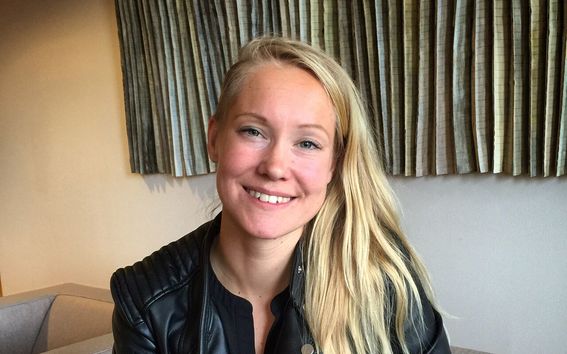What the Finnish concept of sisu can offer the world
If you ask Finns about what defines Finnishness, the word sisu is sure to come up—even if they can’t always put it into words. In 1940, during World War II, The New York Times declared sisu to be ‘the word that explains Finland.’ Sisu has traditionally been elusive and poorly defined but a new study from Aalto University is the first to break down the cultural construct in a systematic way to describe a universal phenomenon of hidden energy in the human system.
‘Sisu is a Finnish word that goes back hundreds of years and a quality that Finns hold dear but the phenomenon itself is universal,’ says Emilia Lahti, a doctoral student at Aalto University and author of the study. ‘Taking a close look at the concept reminds us that, as humans, not only are we all vulnerable in the face of adversity but we share unexplored inner strength that can be accessed in adverse times.’

In her study, Lahti analysed more than 1000 responses from Finns and others knowledgeable about sisu on what the concept means—as well as whether it is inherently a good thing. One of the most prominent aspects apparent in the data: extraordinary perseverance, in other words, an individual’s ability to surpass preconceived limitations, either mentally or physically, by accessing stored-up energy reserves.
Lahti also found the concept to be marked in the responses by a consistent courageous approach to taking action against slim odds, in some cases appearing to the respondents almost as a ‘magic’ source of power that can help pull through tremendous challenges, whether self-selected like an ultra-run or something unexpected like a health struggle.
It is hard to exhaustively describe sisu but, according to the study, it denotes an internal, latent force that moves you forward when you think you have reached your limit. It is almost like a spare tank of gas, Lahti explains; its benefits are thanks to adversity, not in spite of it. Sisu is not always, however, for the better.
‘Sisu will help us take the next step—or the first one—but the outcome of that action will depend on how we use it. In that sense, sisu can be constructive or it can be destructive.’
It was apparent from the data that too much sisu can result in burnout, exhaustion, disconnection and even create an attitude of mercilessness as the individual imposes his or her own harsh standards on others. It seems that sisu is neither good nor bad, but a tool you must learn to master.
While the public discourse at large glorifies mental strength and perpetuates a ‘faster, higher and stronger’ mentality, the answers in the data displayed an alternative view. ‘[Too much sisu leads to] denying the realities of life, as well as the limits of human strength, therefore denying the very core of our humanity in ourselves and others,’ one respondent wrote.
As an action researcher, Lahti sees the study results as an opportunity to engage in a broader societal conversation on how we might improve the quality of human life through greater self-understanding that includes the sisu construct.
‘Finland is an interesting case,’ she says. ‘We’ve again been named world’s happiest country and in global terms we have an excellent social welfare system, but at the same time we are a country that, also, struggles with things like suicide, depression and domestic violence.’ With global conversations on burnout and the tolls of modern life, understanding the extent and limits of human strength through new cultural contexts, like Finland, can contribute to a roadmap toward a more harmonious way of living.
‘We need sisu, but we also need things like benevolence, compassion and honesty with ourselves,' Lahti says. ‘The study is basically an invitation to talk about balance.’
Lahti has also recently explored sisu in her personal life by running the length of New Zealand in 50 days as part of her non-profit that seeks to build cultures of zero violence.
Article
Embodied fortitude: An introduction to the Finnish construct of sisu
For more information
Emilia Lahti
Doctoral Student, Aalto University
emilia.lahti (at) aalto.fi
www.emilialahti.com
- Published:
- Updated:
Read more news

Pengxin Wang: The internship was an adventure filled with incredible research, unforgettable experiences, and lifelong friendships.
Pengxin Wang’s AScI internship advanced AI research, fostered global friendships, and inspired his journey toward trustworthy AI solutions.
Major grant from the Kone Foundation for modern architecture research - Laura Berger's project equates building loss with biodiversity loss
Aalto University postdoctoral researcher Laura Berger and her team have been awarded a 541 400 euro grant from the Kone Foundation to study the effects of building loss on society and the environment.
AIS Impact Award 2024 goes to Professor Matti Rossi and his team
The team won the award for technological and entrepreneurial impact